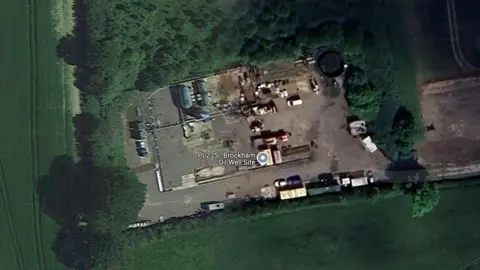- News
Cambodia halts fuel and gas imports from Thailand as crisis simmers
时间:2010-12-5 17:23:32 作者:Weather 来源:Cricket 查看: 评论:0内容摘要:“Even something as simple as trying to have a day outdoors with family, we weren’t able to do it because the heat was too high,” she said, reporting feeling dizzy and sick last summer.“Even something as simple as trying to have a day outdoors with family, we weren’t able to do it because the heat was too high,” she said, reporting feeling dizzy and sick last summer.
as a species aren’t on anThere are as many as 200,000 belugas worldwide and the International Union for Conservation of Nature that creates a global endangered list calls them a species of “least concern,” so Vergara said she often gets asked why not concentrate on animals in more imminent danger.

Erin Greene, center, owner of Sup North, stands on her paddleboard in the Churchill River while leading a tour, Thursday, Aug. 8, 2024, in Churchill, Manitoba. (AP Photo/Joshua A. Bickel)Erin Greene, center, owner of Sup North, stands on her paddleboard in the Churchill River while leading a tour, Thursday, Aug. 8, 2024, in Churchill, Manitoba. (AP Photo/Joshua A. Bickel)“I would say that the threat to animal cultures can happen much quicker than the extinction of an entire species,” Vergara said. And if subpopulations of belugas are wiped out, their cultures disappear too.

“It’s like losing a human language or a human culture,” Vergara said. “We should care.”Follow Seth Borenstein on X at

Read more of AP’s climate coverage at
The Associated Press’ climate and environmental coverage receives financial support from multiple private foundations. AP is solely responsible for all content. Find AP’sMany ride the train weekly, traveling to and from Thompson. At about 13,600 residents, it’s the biggest community the train stops at, besides Winnipeg, with amenities like big-box stores and restaurants.
Thompson — just under halfway between Churchill and Winnipeg — is where many Churchill residents train journey ends.Residents said they often keep cars in Thompson, take the train there and then drive to Winnipeg. They can shave 17 hours off the trip that way, they said.
All but two dozen passengers got off at Thompson, the closest bigger community connected to the rest of Manitoba by road.A train travels through remote wilderness Saturday, Aug. 10, 2024, near Canora, Saskatchewan. (AP Photo/Joshua A. Bickel)
- 最近更新
- 2025-07-07 07:21:00FedEx founder Fred Smith, who revolutionized package delivery, dies at 80
- 2025-07-07 07:21:00China’s navy conducts combat patrols near disputed South China Sea shoal
- 2025-07-07 07:21:00How has Bitcoin performed since Trump took office?
- 2025-07-07 07:21:00UEFA Champions League final: PSG and Inter Milan ‘motivated’ and ‘happy’
- 2025-07-07 07:21:00Divided Israel faces internal unrest amid escalating Gaza conflict
- 2025-07-07 07:21:00A cancer center in Jordan treats kids from Gaza, but only a few dozen have arrived
- 2025-07-07 07:21:00Olympic boxing champ Imane Khelif requires gender test to continue fighting
- 2025-07-07 07:21:00Gaza’s aid system isn’t broken. It’s working exactly as designed
- 热门排行
- 2025-07-07 07:21:00Rechargeable Waterproof Headlamp Flashlights (two-pack)$16$25Save $9with coupon
- 2025-07-07 07:21:00U.S. strikes on Iranian nuclear sites show no sign of widespread environmental impact
- 2025-07-07 07:21:00Federal Open Market Committee minutes [PDF]
- 2025-07-07 07:21:00How has Bitcoin performed since Trump took office?
- 2025-07-07 07:21:00Alpha Grillers Digital Meat Thermometer
- 2025-07-07 07:21:00The Indicator from Planet Money
- 2025-07-07 07:21:00calculated using your highest 35 years of earnings
- 2025-07-07 07:21:00Girl tells Al Jazeera how she escaped school inferno
- 友情链接
- Risk of Iran attack on US bases in Gulf likely not “huge” A port CEO panned Trump’s tariffs. Then a Chinese envoy’s wife sent praise Cambodia halts fuel and gas imports from Thailand as crisis simmers Russia-Ukraine war: List of key events, day 1,213 Russia-Ukraine war: List of key events, day 1,215 Petro’s labour reform referendum suspended by Colombia’s Council of State Petro’s labour reform referendum suspended by Colombia’s Council of State Explosion at fireworks factory in China kills 9, state media says Risk of Iran attack on US bases in Gulf likely not “huge” What led to the attempted assassination of a Colombian politician? Russia-Ukraine war: List of key events, day 1,215 Prominent Nicaraguan dissident shot dead in exile in Costa Rica Mbappe absent again as Real Madrid face Pachuca at CWC – all to know Eight killed after hot air balloon crashes in Brazil In Brazil, a fight over offshore drilling tests Lula’s climate ambitions Brazil’s Bolsonaro accused in spy agency case as coup trial is ongoing See inside newly found smuggling tunnel under Mexico-US border Nippon Steel acquires US Steel for $14.9bn after months of struggle Hurricane Erick approaches Pacific coast, threatens Mexico with flooding Hurricane Erick approaches Pacific coast, threatens Mexico with flooding Fruit and veg threat extends Thailand-Cambodia border row Russia, Indonesia deepen ties as Putin and Prabowo meet in St Petersburg Can divided European powers help end Israel’s war on Iran? Pope century leads England fightback against India at Headingley See inside newly found smuggling tunnel under Mexico-US border Nippon Steel acquires US Steel for $14.9bn after months of struggle At least one person killed, several injured, after earthquake hits Peru Israel-Iran conflict: List of key events, June 22, 2025 Brazil’s Bolsonaro accused in spy agency case as coup trial is ongoing ‘Amazing feeling’: Marc Marquez wins Italian MotoGP for Ducati on home soil
